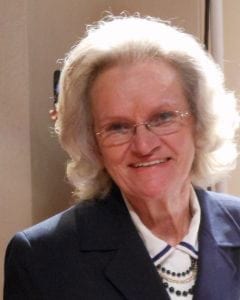Recently, when another rare mother and I were discussing the many trials that rare disease families face, we agreed that we wished that the general public would understand how vulnerable these families become through time.
Everyone knows what it is like to feel stress, but most don’t know about the unrelenting stress of handling the many aspects caused first by suspecting, or even knowing that something isn’t right, then looking for the reasons, only to learn that they have entered the world of rare – very poorly understood by not only the general public, but also by the medical community.
Many try to balance family life with their working life, but these families have the added complication of doctor appointments and hospitalizations, often at a great distance from home, often adding financial strain, and often leaving them disappointed in the results. Usually one parent must work while the other parent handles the appointments, if the parents manage to stay together under the strain.
They might become sleep deprived, and choose fattening foods in order to keep up their energy, only to have someone make a rude remark about their weight. Or, they might spend so much time dealing with the symptoms of the condition that they miss meals and lose weight, only to have someone make a rude remark about that.
Exhaustion can lead to having emotional reactions that others think are out of proportion. They might develop a short fuse, losing patience about something they might not react to otherwise. Sometimes they fight back tears when something triggers a memory or a suppressed fear comes to the surface. That woman with the baby in her arms at the pharmacy having a major melt-down was just told that insurance isn’t going to cover that new medication the doctor ordered for her child, because the medication was only approved for a condition that her child didn’t have.
Parents become frustrated that others have expectations of them that the rare disease makes impossible. The dad would love to be able to coach his oldest son’s game, but he is needed at home to take care of the youngest son who has multiple physical limitations.
A mom is interrupted from feeding her son who can no longer feed himself when she receives a phone call asking her to help out with awareness of a well-known disease from a charity by letting their neighbors know about that disease. Instead of responding, she hangs up the phone, puts her head down in her hands and cries because she wanted to tell the caller that of the rare disease that only a handful of people have any idea even exists.
Someone says, “I don’t know how you do it,” and she thinks, “Neither do I!”
Someone else says, “I couldn’t do what you do.” and he thinks, “You probably could, if you had to… but it wouldn’t be easy.”
But then, there are some people who really can’t cope, and someone else has to take over. I once met a couple of darling young children who were dropped off at a hospital when their mother could no longer cope with their rare disease, knowing that it would cause their early death. Their father had already taken off for greener passages. The children became wards of the state, to be taken care of by others until such time as they died.
When a mom leaves her quick-to-get-into clothes on a hook in the bathroom before going to bed every night because she has had to make so many unexpected middle of the night hospital trips, she would like others to know how difficult an otherwise normal day can be when dealing with the stresses of a rare disease in addition to the average life stresses of family life.
All of these families feel very vulnerable to criticism. They want and need to be understood, not judged.
 About the Author: Denise Crompton and her husband Bob, raised four children, the oldest of whom, Kelley, had the rare disease of Mucolipidosis 3. The many years that they spent caring for Kelley prompted Denise to write two books. Kelley’s Journey: Facing a Rare Disease with Courage chronicles their own daughter’s experiences. Diagnosis: Rare Disease includes some of the experiences of 12 more families, and was written to help raise awareness of all that is involved in living with rare conditions. All of Denise’s royalties go toward rare disease research. The Cromptons live in New Hampshire, where they spend their retirement years enjoying their many grandchildren, while still reaching out to help families with rare diseases.
About the Author: Denise Crompton and her husband Bob, raised four children, the oldest of whom, Kelley, had the rare disease of Mucolipidosis 3. The many years that they spent caring for Kelley prompted Denise to write two books. Kelley’s Journey: Facing a Rare Disease with Courage chronicles their own daughter’s experiences. Diagnosis: Rare Disease includes some of the experiences of 12 more families, and was written to help raise awareness of all that is involved in living with rare conditions. All of Denise’s royalties go toward rare disease research. The Cromptons live in New Hampshire, where they spend their retirement years enjoying their many grandchildren, while still reaching out to help families with rare diseases.
Share this rare disease story and let us know your rare disease experience today.


